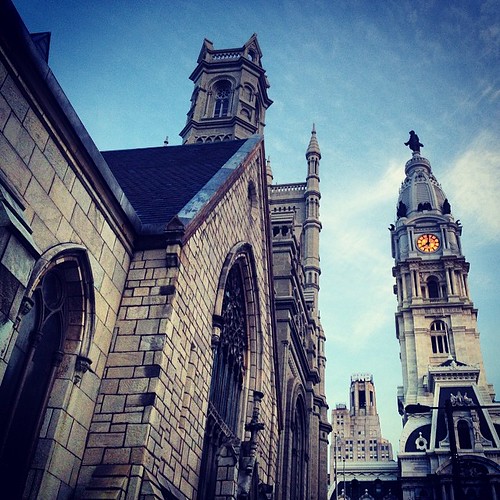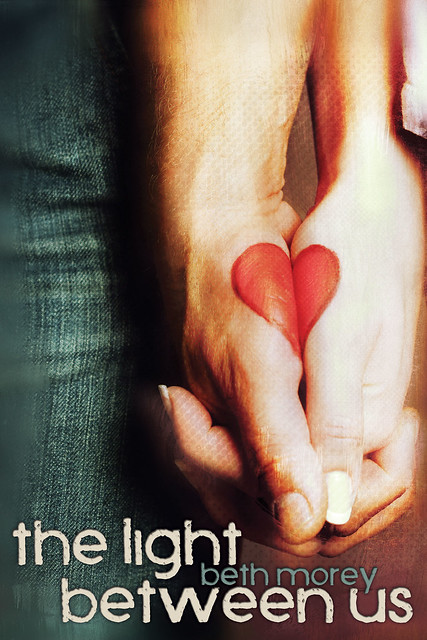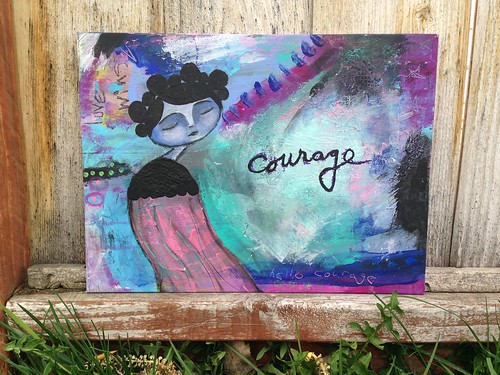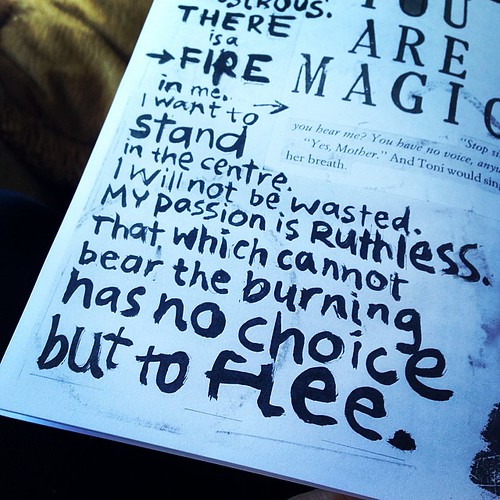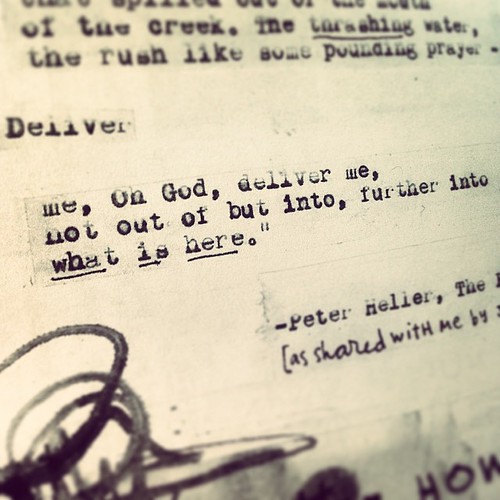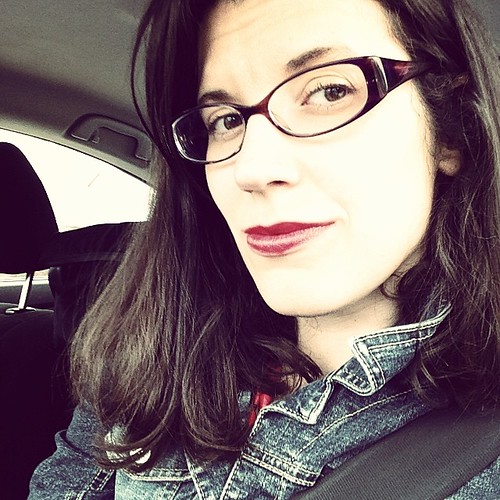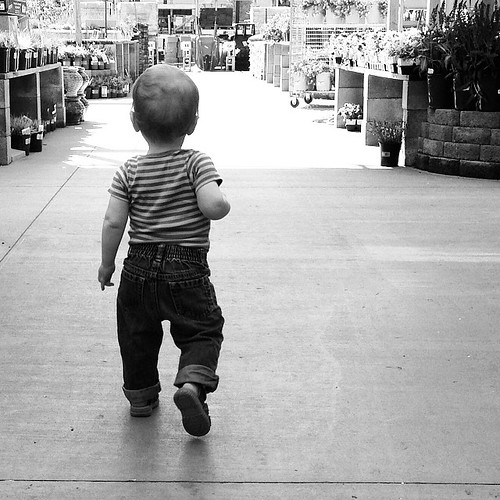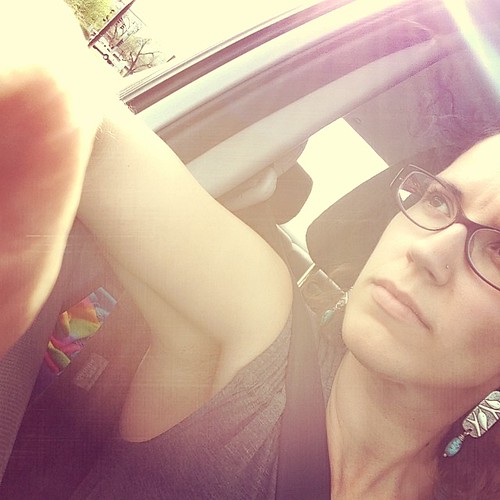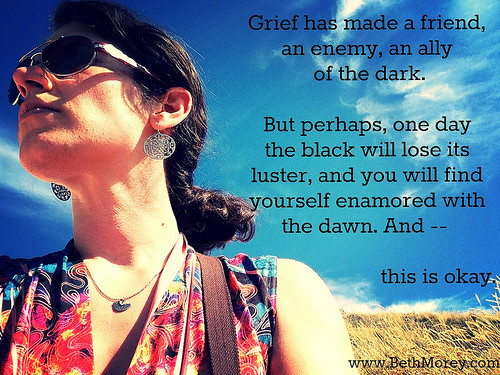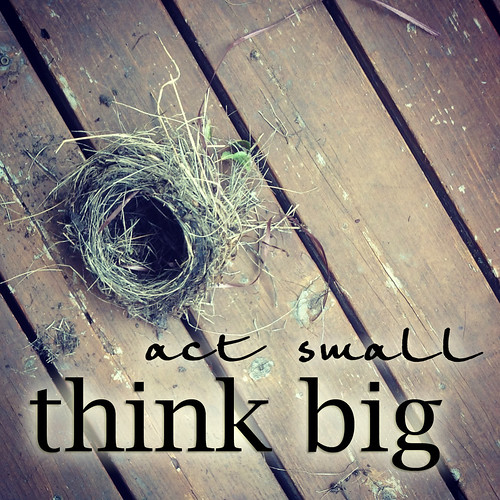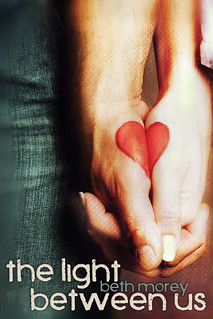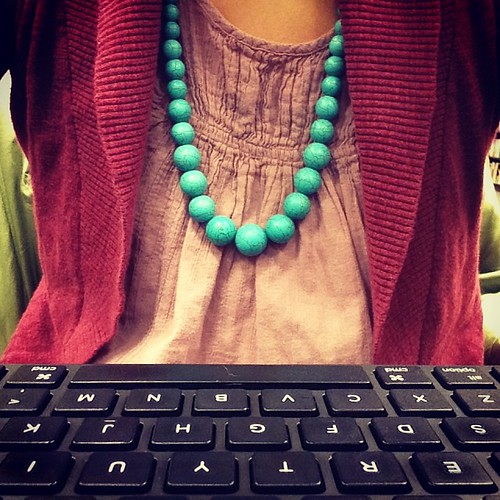She came from nowhere, it seemed, and slipped away in the same smooth and silent way.
We were at the donut shop's counter, being treated to coffee by one of the people we were visiting. His wallet was out, and suddenly she was there, at his side, all creased chocolate skin and curls spiraling with gray and -- this is what has stayed with me -- dark and haunted eyes.
"Do you have a dollar?" she asked the one of our group who was paying. "Could you get me a coffee?"
His reply was sharp, a matter of course. He tossed it at her as if it was nothing, as if she was nothing -- which, of course, to him, she was.
"No," he said, jerking a hand her way as if he was flicking off a fly, dismissively, almost flippantly. I don't think he even looked at her. I don't think he saw her at all.
But I saw her. My eyes met hers, those nearly-black depths, and we looked at each other. My stomach twisted, and our souls met, perhaps, in that moment. I can't say she felt that or anything other than non-surprise -- another white man with his white companions and their sure, unseeing caucasian eyes -- but I was rocked to the core of my core of my core.
I felt shocked. Shocked at her boldness to come right into the store and ask for that coffee, shocked at the "no," shocked at how I winced in pain at that matter-of-fact reply and the woman did not.
I didn't buy her a coffee either. I didn't have cash, but that's no excuse, and before I could think or fish for a credit card, she was gone, a breath of smoke wafting back out into the sea of urban humanity that churned passed the shop's windows.
But the churning in my gut did not leave with her.
* * *
Recently, we traveled to Philadelphia, a city close in culture and geography to where I grew up. A month or so back, we went to Austin, Texas. And on both trips, I was confronted with my whiteness.
I've forgotten, living in this mountainous city, how homogenous we are here. How very white we are. Yes, we have Native American folks, and poor folks, too, but the overall impression of the community is white white white.
Then we leave home, and all of a sudden my child is meeting his first black person, his first brown person, his first not-white people. And I can't stop wondering if such a racially homogenous town is the best place to raise him. If it's the best place for us, for me, for anyone.
We've (I've) gotten so comfortable with sameness.
* * *
In Austin, I was delighted by our dip into racial diversity. In Philadelphia, I was disturbed by it.
In Philadelphia, the city of brotherly love, our hotel was located in the business district. We arrived on a weekend day, and as we walked the area I was pleasantly surprised by how few white people there were out with us. I relished cacophany of skin colors.
But the morning, a workday, told a different story. Suddenly, there were white people everywhere, striding in crisp suits and barking importantly on phones and sitting in meetings over lunch. Not only white people, of course -- but the difference from the night before was unsettling.
I noticed, too, that we did not meet a single white person employed in a service position. Not one.
I'd forgotten that. I'd grown up in a culture where every McDonald's employee was black as a rule -- a rule that was never broken. I'd forgotten how comfortable I was as a child and teen with this reality -- that white people were never, never, never taxi drivers or gas station attendants or fast food clerks or convenience store cashiers or custodians.
But now, after my sojourn in the Rocky Mountains, I found my skin crawling at this actuality.
* * *
My grandmother is an old, old woman. We journeyed to Philadelphia to see her, probably for the last time in this life. And while she is feisty and strong, she needs help now.
When we visited her, we ended up visiting with her caregivers, too, because they are always with her. They are a good match for my grandma, for they are just as fiery and fierce as she is, and so deliciously sassy to boot.
They are also black.
Every caregiver and custodian at my grandmother's facility was black. And every resident was white. Every one. That we saw, anyway. This makes me uncomfortable.
My grandmother's caregivers call her "Miss Mary," and that makes me uncomfortable, too. When they'd say it, the words would conjure up unbidden images of racial crimes in the South during the civil rights era, and of plantations and masters and cracking whips and the flesh of the other bought and sold as if the soul it spread over wasn't listening, loving, aching wondering.
* * *
That woman in the donut shop, she did not expect to be seen, to be given coffee or kindness. She was accustomed to being invisible.
But I saw her. I saw you, woman with the haunting eyes. I don't know you or your story, I don't know why you were begging for coffee, for a single dollar. I don't know how life has wounded you. I don't know why you love, what makes you weep.
But I saw you.
I saw something in my self, too, something old and hard and small, and something new unfurling crimson wings toward the sun. I saw something of our culture's illnesses.
I can't unsee this, or you, woman with the haunting eyes. I don't want to.
* * *
While we were in Philadelphia, I had a hard time finding the right words to define the growing discomfort and unsettled feelings in my heart in response to these racial observations. How do describe, to discuss my churning thoughts?
But at last, I landed on the phrase -- white privilege.
I have never been more aware of the fact that white privilege exists in our culture, in our world. That it exists in my world. That I enjoy it daily, hourly, with every pulsing shudder of my heart.
And -- that with that privilege comes responsibility. Responsibility to use the privilege of my skin color well. I didn't ask for that privilege or do anything to earn it. And yet I have it.
But how to use it? How to use that unasked for power and the financial and social privileges that I enjoy? How do I wield my white privilege as an actually helpful (not a perceived-by-me, make-my-self-feel-better, offensive sort of "helpful") force?
Also, what does all this tell me about how to live in my homogenous home town -- because while we don't have a lot of non-white folks, there are certainly many homeless and underprivileged people that I largely have not seen and/or avoid seeing.
Also, what does all this tell me about how to live in my homogenous home town -- because while we don't have a lot of non-white folks, there are certainly many homeless and underprivileged people that I largely have not seen and/or avoid seeing.
I don't have answers. I don't know what to do.
But I have seen. A layer of social blindness has fallen from my eyes, and I cannot call this anything but good.
Edited to add: Please know that I am not trying to say that only black/non-white people work in service or are poor and/or disadvantaged. Nor am I saying that black/non-white people can only work in service types of positions. I am also not trying to insinuate that white privilege is the only kind of privilege out there. I am merely stating my observations during this one trip and pondering their potential meanings, both for society and for what it says about myself. Thanks for your grace as we walk into this sensitive topic together.
Want to read more about white privilege? Here are a few items I found helpful . . .
- White Privilege: Unpacking the Invisible Knapsack
- What is White Privilege? {The White Privilege Conference}
- 17 Examples of White Privilege {Buzzfeed -- I know, I know, but this is a good visual}

